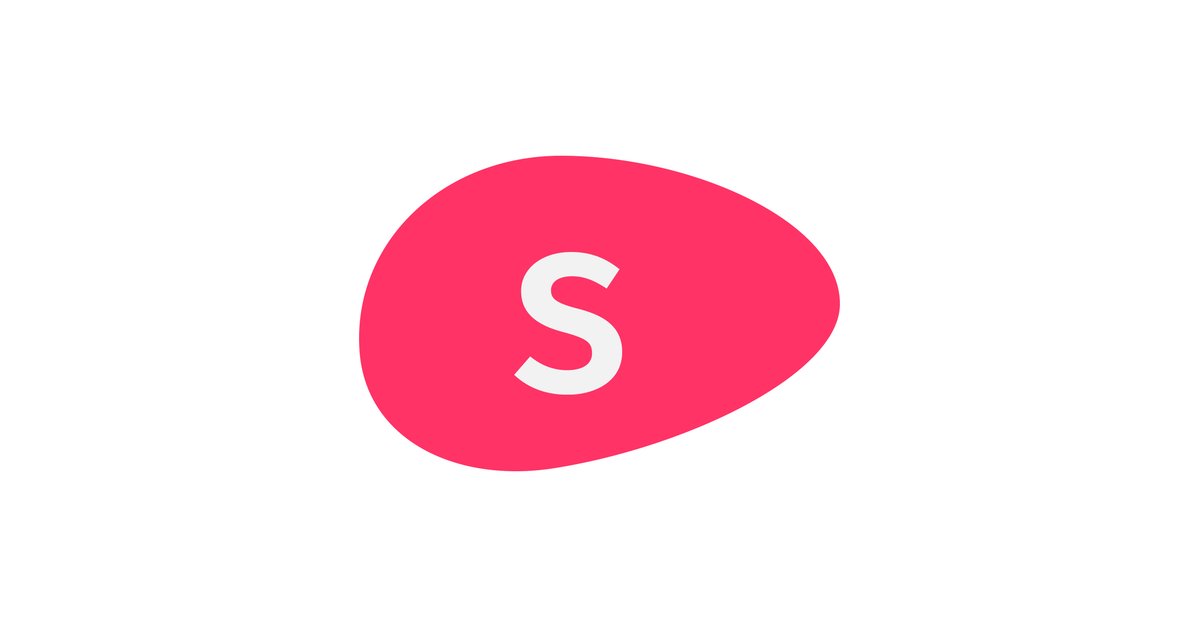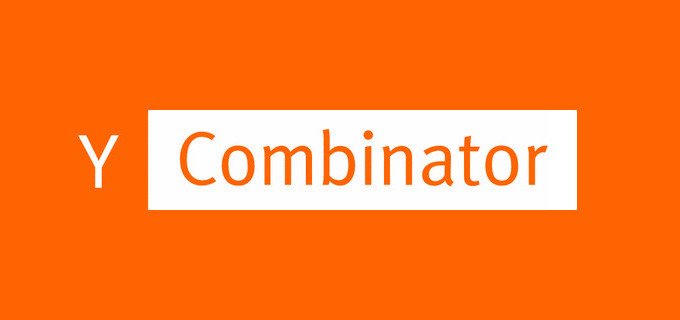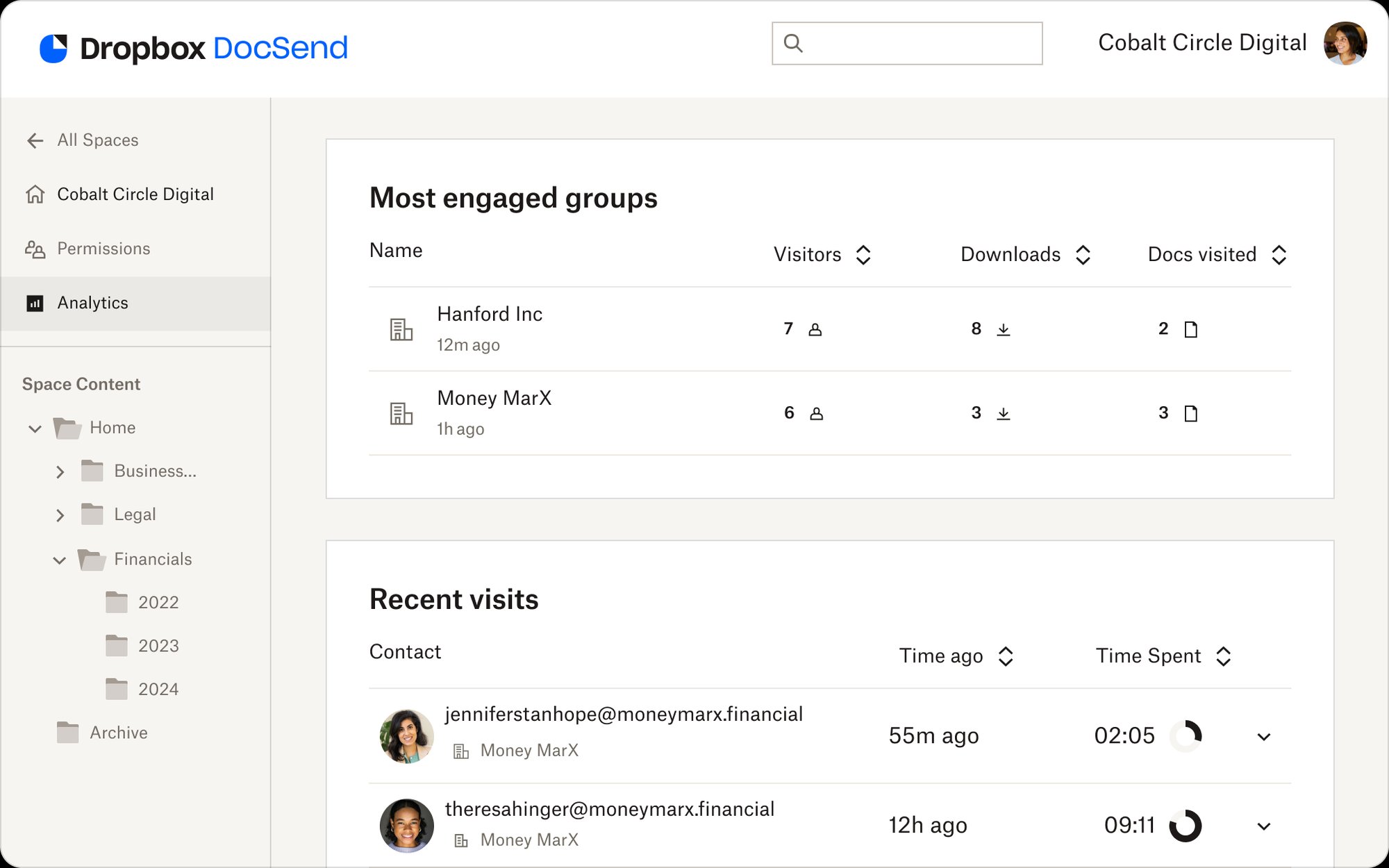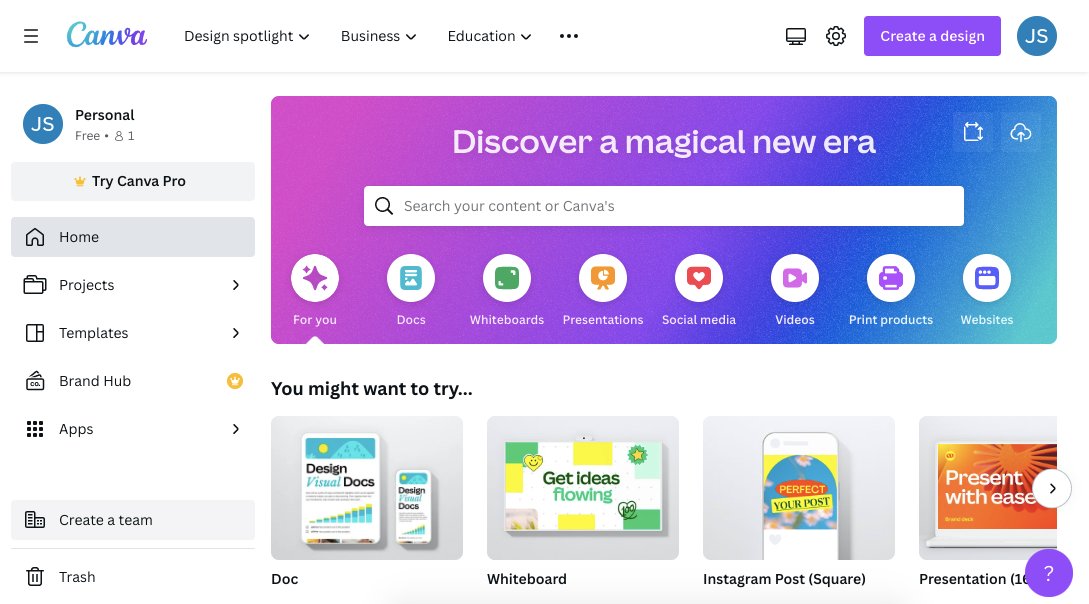Top 7 Startup Pitch Deck Examples to Nail Your Funding Round
A killer pitch deck doesn’t just show numbers—it tells a story that makes investors lean in. Don’t waste time guessing what works; learn from founders who’ve already secured funding. This guide breaks down the strategies behind the world’s most successful pitch decks.
Key Takeaways:
See how unicorns like Airbnb and top investors like Sequoia structure their narratives to capture attention.
Access actionable frameworks from Y Combinator, Slidebean, and Pitch Deck Hunt.
Get direct links to examples with slide-by-slide breakdowns and strategy insights.
Learn to clearly frame your problem, highlight your solution, and present confident financials.
Understand why a strong deck is essential for VC funding, while also exploring alternative funding options like R&D grants.
Build a deck that looks sharp, tells a compelling story, and connects with investors on a gut level.
1. Slidebean

Slidebean is your one-stop shop to both study legendary startup pitch deck examples and build your own. It fuses a massive library of famous decks with an intuitive, AI-powered platform. It’s the fastest way to get from inspiration to execution.
Its core strength? A dual-purpose attack. You don't just see recreated decks from giants like Airbnb and Uber; you get detailed, slide-by-slide teardowns that dissect their strategy, narrative, and design. This turns passive viewing into active learning.
Why It Stands Out
Slidebean’s killer feature is its seamless blend of learning and creation. After analyzing a classic pitch deck, you immediately apply those insights using their 100+ pro templates or the AI presentation builder. It closes the gap between theory and practice—a huge hurdle for founders.
The platform also packs practical tools beyond slide creation. Its deck-sharing feature with view tracking gives you intel on which slides investors actually care about, helping you sharpen your pitch.
Actionable Takeaway: Use Slidebean as an interactive workbook, not just a library. Deconstruct Airbnb's deck, then immediately pop open a template and apply its storytelling structure to your business. This hands-on method puts learning on hyperdrive.
Features & Pricing
Slidebean runs on a freemium model. Viewing some content is free, but the real power is in the paid plans.
Feature | Free / Basic Plan | All-Access Plan |
|---|---|---|
Pitch Deck Examples | Limited Access | Full access to 35+ breakdowns |
Editable Templates | Limited | 100+ professional templates |
AI Presentation Maker | Yes | Yes |
View Tracking & Analytics | No | Yes |
Financial Model Templates | No | Yes, includes 50+ templates |
Investor Finder Database | No | Yes |
Pricing | $0 | Starts at ~$29/month (billed annually) |
Punchy Tips for Founders
Deconstruct, Don't Copy: Find the why behind each slide. Why is the "Team" slide there? How did they frame their market size? Master the logic, not just the layout.
Draft Fast with AI: Use the AI builder to generate your first draft in minutes. This saves you from formatting hell and lets you focus on your story and data.
Test with Tracking: Before pitching your top-tier VCs, send a tracked link to trusted advisors. Analyze the data. Where do they drop off? Which slides do they re-read? Iterate based on real feedback.
Website: https://slidebean.com
2. Pitch Deck Hunt
Pitch Deck Hunt is a lean, no-frills library of real-world startup pitch deck examples. It’s a searchable, community-fed directory giving you direct access to hundreds of decks from pre-seed to Series C and beyond.
Its power is its simplicity and scale. No detailed breakdowns, no creation tools. Just a straightforward, browseable gallery. This makes it the perfect resource to quickly see how different companies in your sector structured their pitch.

Why It Stands Out
Pitch Deck Hunt's differentiator is raw, unfiltered access to a massive volume of decks—for free. While other platforms curate and analyze, this site is a public archive. You can rapidly compare a pre-seed fintech deck against a Series A SaaS deck, instantly spotting patterns in storytelling, data, and design.
It's a pure reference tool built for research and inspiration. Its powerful filters let you find relevant examples without wading through content, making it the most efficient way to understand your industry's pitching norms.
Actionable Takeaway: Use Pitch Deck Hunt for competitive intel. Before building your deck, find 5-10 companies in your exact niche and funding stage. Analyze them side-by-side to pinpoint the "must-have" slides and narrative flow investors in your space demand.
Features & Pricing
Pitch Deck Hunt is 100% free. No paid plans, no premium tiers.
Feature | Free / Basic Plan | All-Access Plan |
|---|---|---|
Pitch Deck Examples | Full Access | N/A |
Search & Filtering | Yes | N/A |
Industry & Stage Categories | Yes | N/A |
Community Submissions | Yes | N/A |
Deck Creation Tools | No | N/A |
View Tracking & Analytics | No | N/A |
Pricing | $0 | N/A |
Punchy Tips for Founders
Filter with Purpose: Don't just browse. Filter for your company's stage (Seed), industry (SaaS), and amount raised. A Series B deck is useless if you're raising a pre-seed round.
Hunt for Patterns: As you review decks in your category, spot the common threads. Do they all lead with the problem? Is the team slide early or late? These patterns reveal investor expectations.
Create a "Slide Bank": Stuck on visualizing traction or market size? Search for successful decks and see how they designed those specific slides. Use their approach as inspiration for your own.
Website: https://www.pitchdeckhunt.com
3. Sequoia Capital
Sequoia Capital offers the gold standard: a free, authoritative guide to the canonical pitch deck structure. This isn't a gallery of startup pitch deck examples; it's the foundational blueprint from one of the world's most powerful VC firms.
Its strength is its simplicity and authority. The guide is a clear, slide-by-slide checklist of what top-tier VCs demand. This framework cuts the fluff and forces you to focus on the ten essential components of a winning business story, from problem to financials.

Why It Stands Out
Sequoia’s differentiator is its origin. This is direct, distilled wisdom from the firm that backed Apple, Google, and Airbnb. Follow this guide, and your pitch will be instantly familiar and credible to any serious investor.
While it lacks visual templates, its value is strategic clarity. It forces you to answer the most critical questions about your business before designing a single slide. This "first principles" approach ensures your substance is solid—which matters far more than flashy graphics. You can find more insights on how top VCs like Sequoia evaluate businesses in various business growth tools.
Actionable Takeaway: Use the Sequoia guide as your foundation. Before opening a presentation tool, write one sentence answering the core question for each of the ten slides. If you can't, your story isn't ready.
Features & Pricing
The Sequoia resource is completely free, designed to elevate the entire startup ecosystem.
Feature | Availability |
|---|---|
Pitch Deck Framework | Yes, a 10-slide canonical structure |
Slide Content Guidance | Yes, clear prompts for each section |
Industry Applicability | Universal; for any industry or funding stage |
Completed Deck Examples | No, it is a structural guide |
Downloadable Templates | No |
Pricing | $0 |
Punchy Tips for Founders
Build the Skeleton First: Use the Sequoia outline to create a text-only version of your deck in a document. This forces you to nail your narrative and data before getting lost in design.
Pressure-Test Every Slide: For each slide (e.g., "The Problem"), ask: would my grandma get this? If not, simplify it. Ruthlessly.
Combine and Conquer: Once your narrative is rock-solid on the Sequoia framework, use a platform like Slidebean or Canva to find a template that makes it look killer. The structure is the skeleton; design is the skin.
Website: https://www.sequoiacap.com/article/writing-a-business-plan/
4. Y Combinator

Y Combinator offers the essential, no-fluff Seed Deck Template that has shaped countless successful pitches. This isn't a library of flashy startup pitch deck examples; it's the core framework YC itself gives to founders. It prioritizes substance over style, forcing you to distill your vision into a clear, potent narrative.
Its authority and simplicity are its core strengths. Coming from an institution that has seen tens of thousands of pitches, this template is the definitive guide to what early-stage investors actually want. The accompanying blog post gives slide-by-slide commentary, explaining the "why" and steering you away from common blunders like vague metrics.
Why It Stands Out
Y Combinator's differentiator is its brutal focus on clarity and traction. The template strips away design fluff and forces you to answer the killer questions: What's the problem? What's your solution? How big is the market? Why now? This minimalist approach is powerful because it mirrors how veteran investors think.
Unlike platforms with endless options, YC provides a single, battle-tested blueprint. This kills decision fatigue and gives first-time founders a clear path. It’s less of a tool and more of a philosophy: communicate effectively or die.
Actionable Takeaway: Use the YC Seed Deck Template as your pitch's "minimum viable product." Build your core story using its strict, 10-slide structure first. Once your narrative, data, and traction are undeniable, then layer on a professional design. Substance first, style second.
Features & Pricing
The YC template and guide are 100% free, part of their mission to make entrepreneurship accessible to everyone.
Feature | Availability |
|---|---|
Seed Deck Template | Free |
Downloadable Formats | Google Slides & PowerPoint |
Slide-by-Slide Commentary | Yes, included in the instructional blog post |
Focus on Narrative & Clarity | High |
Visual Examples | Limited, focus is on structure |
Broader Founder Advice | Full access to YC’s extensive resource library |
Pricing | $0 |
Punchy Tips for Founders
Embrace the Constraints: The template’s brevity is its power. If you can’t fit your idea into this tight structure, your narrative isn't sharp enough. Refine your story until it fits. No excuses.
One Slide, One Idea: Stick to the rule of one clear idea per slide. The "Problem" slide is only about the customer's pain. Don't hint at your solution. Stay focused.
Pair with Go-to-Market: Your deck is your plan; your marketing strategy is how you'll win. This is a critical piece many founders botch. To sharpen this, learn more about defining a startup's marketing strategy on viralmarketinglab.com.
Website: https://www.ycombinator.com/blog/intro-to-the-yc-seed-deck/
5. DocSend (by Dropbox)

DocSend is where data-driven fundraising smashes into presentation design. It’s more than templates; it’s a research-backed playbook on what makes a pitch deck work, based on analytics from thousands of decks. It’s your secret weapon for understanding what investors actually look at.
Its core value is connecting content structure with real investor behavior. DocSend’s guides don't just give you a template; they explain why the recommended slide order for pre-seed and seed rounds is proven to work. This data-first approach demystifies the fundraising game.
Why It Stands Out
DocSend's killer differentiator is its analytics platform for secure document sharing. The free templates are a great start, but the paid platform turns your deck into a feedback machine. See who viewed it, how long they spent on each slide, and if they shared it.
This insight is a game-changer. It lets you spot which investors are truly engaged, tailor your follow-ups, and A/B test decks to see what hits hardest. It pulls back the curtain on a process that’s usually a black box.
Actionable Takeaway: Use DocSend's free template for your initial draft, following its data-backed slide order. Before you blast your top-tier list, send a tracked link to friendly investors. Use their engagement data to find and fix weak slides.
Features & Pricing
DocSend splits its offering between free resources and a powerful paid platform for sharing and analytics.
Feature | Free Resources | Paid Plans (Personal, Standard, etc.) |
|---|---|---|
Pitch Deck Templates | Yes, downloadable with guide | Included |
Data-Driven Guides | Yes | Included |
Secure Deck Sharing | No | Yes, with passcodes and access control |
View Tracking & Analytics | No | Yes, per-viewer and per-page analytics |
Virtual Data Rooms | No | Yes |
eSignature | No | Yes |
Pricing | $0 (requires email signup) | Starts at ~$10/month per user (billed annually) |
Punchy Tips for Founders
Trust the Data: Follow the slide order in DocSend's templates. It's based on what actually works to get meetings, not on theory.
Create Unique Links: Generate a unique DocSend link for each investor. This tracks individual engagement and stops your deck from being passed around without your knowledge.
Analyze Beyond the "Open": Don't just track opens. Dive into the "time per slide" metric. If investors blaze past your "Financials" slide in 3 seconds, it's too dense or confusing. Fix it.
Website: https://experience.dropbox.com/form/docsend/pitch-deck-template
6. Canva

Canva is the go-to design weapon for non-designers, and its massive library of startup pitch deck examples and templates makes it a powerhouse for founders. It’s a browser-based platform built for speed, letting anyone create a visually stunning deck in hours, not days.
Its main advantage is accessibility. Canva obliterates the learning curve of pro design software. Pick a template, drag-and-drop your content, and customize it to match your brand. It democratizes good design, letting early-stage teams look polished without a design budget.
Why It Stands Out
Canva’s differentiator is sheer volume and dead-simple usability. While others offer curated templates, Canva gives you a marketplace with thousands of options for every industry and style. This variety, plus its intuitive editor, makes it the fastest path from a blank page to a finished PDF.
It's a complete design ecosystem. Get millions of stock photos, icons, and graphics right inside the editor. The "Brand Kit" feature (on paid plans) saves your logos, colors, and fonts, ensuring every slide is perfectly on-brand.
Actionable Takeaway: Use Canva for rapid prototyping. Create multiple visual versions of a key slide—like "Solution" or "Go-to-Market"—and test them with advisors. Canva's speed lets you iterate on design and messaging faster than any other tool.
Features & Pricing
Canva offers a robust free version, with its most powerful features unlocked in the Pro and Teams plans.
Feature | Free Plan | Canva Pro / Teams Plan |
|---|---|---|
Pitch Deck Templates | Thousands of free templates | Full access to all premium templates & assets |
Stock Photos & Graphics | Limited free assets | 100+ million premium stock assets |
Real-time Collaboration | Yes | Yes, with advanced team features |
Brand Kit | No | Yes, create and manage brand assets |
Export Options | PDF, JPG, PNG | PDF, PPT, plus resizing and transparent bg |
AI Magic Studio | Limited access | Full access to AI design tools |
Pricing | $0 | Starts at ~$12.99/month (billed annually) |
Punchy Tips for Founders
Search "Startup" or "Pitch Deck": Use specific keywords in the template search to find professionally structured examples. Avoid generic templates that miss the slides investors expect.
Customize Aggressively: Templates are a start. Change more than the text. Swap stock photos for product screenshots or team pictures. Make it yours.
Use "Present & Record": Canva lets you record yourself presenting the deck as a video. This is a killer tool for sending a "warm" intro to investors you can't meet live.
Website: https://www.canva.com
7. Amazon

Amazon is the overlooked library for founders seeking deep, narrative-driven startup pitch deck examples and fundraising strategy. It hosts a massive collection of books from VCs, successful founders, and pitching coaches who deconstruct the art and science of the perfect pitch, often with annotated decks and brutal critiques.
This resource is for founders who want to master the storytelling, psychology, and strategy behind a killer fundraising narrative. Books like "Get Backed" or "Pitch Anything" offer frameworks and real-world examples that digital libraries miss, providing a masterclass in persuasion.
Why It Stands Out
Amazon's unique value is the depth of its resources. A good book is a permanent reference guide for your startup journey. These authors don't just show you examples; they teach you the underlying principles of crafting a story, framing a market, and presenting data that hits investors on a psychological level.
Many of these books include slide-by-slide teardowns, "before and after" examples, and strategic frameworks you can't find anywhere else. A one-time purchase gives your team a permanent asset, making it a highly cost-effective investment.
Actionable Takeaway: Treat books from Amazon as a fundraising masterclass. Don't just skim. Read, highlight, and debate the core frameworks with your co-founders. Apply one book's methodology from start to finish to build a cohesive, powerful narrative for your deck.
Features & Pricing
Amazon is a marketplace, so pricing varies by book, format, and seller.
Feature | Availability | Pricing Model |
|---|---|---|
Pitch Deck Examples | Available in numerous best-selling books | One-time purchase per book |
Annotated Breakdowns | A core feature of top-rated fundraising books | Included in the book's price |
Strategic Frameworks | Yes, detailed methodologies and playbooks | Included in the book's price |
Format Options | Kindle, Paperback, Hardcover, Audiobook | Varies (typically $10 - $30 per book) |
"Look Inside" Feature | Yes, allows you to preview content before buying | Free |
Prime Shipping | Yes, for fast delivery of physical copies | Included with Amazon Prime subscription |
Punchy Tips for Founders
Read the Reviews: Focus on reviews from other founders or investors. They'll tell you which books offer actionable advice versus high-level fluff.
Use "Look Inside": Preview the book to check its table of contents and sample pages. Make sure it has actual deck examples, not just generic business advice.
Build a Team Library: Buy a physical copy for the office and Kindle versions for remote teammates. A shared library of 2-3 essential fundraising books gets everyone on the same page.
Combine Digital and Analog: Use the principles from a book to guide your content, then use a platform like Canva to execute. The book is the "why," the software is the "how."
Website: https://www.amazon.com
7 Startup Pitch Deck Examples Comparison
Platform | Implementation Complexity 🔄 | Resource Requirements ⚡ | Expected Outcomes 📊 | Ideal Use Cases 💡 | Key Advantages ⭐ |
|---|---|---|---|---|---|
Slidebean | Moderate – AI tools simplify creation but paid tiers add complexity | Moderate – Requires subscription for full features | High – Practical, example-driven decks plus analytics | Startups needing fast, customized pitch decks with AI help | Large curated examples, AI builder, analytics |
Pitch Deck Hunt | Low – Browsing and filtering only | Low – Free access to public data | Medium – Inspiration and reference from real decks | Founders seeking free, wide variety of real pitch deck examples | Free, extensive searchable database |
Sequoia Capital | Low – Follow a clear, fixed structure | Very low – Free guide without tools | Medium – Authoritative slide structure for clarity | Early-stage startups needing trusted, simple deck framework | Authoritative, timeless guidance |
Y Combinator | Low – Download and customize basic templates | Low – Free downloadable slides | Medium – Clear, minimalistic decks focusing on narrative | Seed-stage startups wanting credible, no-frills templates | Simple, trusted format with clear instructions |
DocSend | Moderate – Template use plus paid analytics | Moderate to High – Free templates; analytics gated | High – Data-driven deck optimization and tracking | Startups wanting data insight and engagement tracking | Evidence-based templates and investor metrics |
Canva | Low – Drag-and-drop in-browser design | Low to Moderate – Free with paid upgrades | Medium – Visually appealing decks by non-designers | Non-designers needing fast, stylish pitch deck creation | Vast template library, collaboration, ease of use |
Amazon | Low to Moderate – Passive learning via books | Low – One-time purchase cost | Medium – Deep narrative understanding, offline use | Founders wanting comprehensive study and offline reference | In-depth content, annotated examples, offline access |
From Example to Execution: Your Next Move
You've now seen the deconstructed playbooks behind the most effective startup pitch deck examples. From Slidebean's templates to the raw blueprints from Y Combinator and Sequoia, a clear pattern emerges. A winning deck isn't a slide collection; it's a strategic narrative built to get the next meeting.
The journey from a blank canvas to a killer deck feels huge. But the path is well-worn. The key isn't reinventing the wheel. It's adapting these proven frameworks to your unique story, your hard-earned metrics, and your ambitious vision.
Key Insights Synthesized
The examples from industry titans and curated libraries all point to the same non-negotiable principles. Master these, or get archived.
Clarity Over Complexity: The best decks hammer home one powerful idea per slide. Airbnb’s first deck was brutally simple: "Book rooms with locals, rather than hotels." Can you distill your core value with that same razor-sharp clarity? If not, you're not ready.
Narrative is King: Data is critical, but it needs a story. The problem, solution, market, and team—these are the chapters. Your deck must guide the investor through this journey logically and emotionally.
Data-Driven Validation: Gut feelings don't raise money. As DocSend's analytics prove, metrics matter. User growth, revenue, engagement—your numbers are your proof. They turn your claims from speculation into hard evidence.
Your Actionable Roadmap: Build Your Deck Now
Studying examples is step one. Execution is everything. It's time to build.
Nail Your Core Narrative: Before you open Canva, write your story. What's the single problem you solve? Who is your customer? Why is your team the one to win? Get this down on paper first.
Pick the Right Weapon: Your tool must match your goals.
For Speed and Structure: Slidebean is your go-to. Its AI and templates eliminate the design guesswork.
For Creative Control: Canva offers unmatched design flexibility. If you have a strong brand, build it here.
For Proven Frameworks: Start with Sequoia Capital or Y Combinator. These are battle-tested structures investors recognize and respect.
Iterate with Feedback: Your first draft is never your last. Use DocSend to share your deck and track engagement. See which slides investors obsess over and where they bail. That data is gold.
Remember, a pitch deck’s only job is to spark curiosity and earn you a meeting. Each slide must build momentum, making the investor desperate to learn more. The startup pitch deck examples in this guide are your blueprint. Now, go build the deck that gets your vision funded.
FAQs
What is a pitch deck, and why do I need one?
A pitch deck is a brief presentation that outlines your startup’s business, product, market, and growth potential. It’s your key tool for securing investor meetings and funding.
How many slides should a standard pitch deck have?
Most successful decks, like Sequoia and YC, stick to 10–12 slides. Focus on clarity: problem, solution, market, business model, traction, team, and financials.
Can I just copy someone else’s pitch deck?
No. Use other decks for inspiration, not replication. Study their structure and strategy, but adapt the content to your startup’s unique story and metrics.
Which platform is best for creating my first deck?
Slidebean: Best for speed and structure; AI templates simplify design.
Canva: Ideal for full creative control and visual customization.
YC or Sequoia guides: Best for building a strategic framework first.
How detailed should financials be in my deck?
At early stages, investors want high-level projections: revenue, burn rate, runway, and key metrics. Don’t overwhelm them with every line item; clarity is key.
Is it necessary to track who views my deck?
Not essential at the beginning, but platforms like DocSend help you see which slides investors focus on, letting you iterate and improve your pitch.
Can I raise funding without a pitch deck?
Technically yes, but a well-crafted deck dramatically increases your chances and speeds up investor conversations. It shows preparation and professionalism.
How do I choose between free and paid pitch deck tools?
Free tools (YC template, Pitch Deck Hunt) are perfect for frameworks and inspiration.
Paid tools (Slidebean, Canva Pro, DocSend) provide templates, AI, analytics, and professional polish.
Can books on Amazon replace online templates?
Books provide strategic insights and narrative guidance. Combine them with online tools for design execution—books teach the “why,” platforms help with the “how.”
What’s the single biggest mistake founders make in decks?
Overloading slides with text, data, or jargon. Less is more: clarity and storytelling beat flashy visuals or complicated charts.
Ready to move beyond the pitch deck and into scalable growth? A great deck gets you in the door, but a powerful growth engine keeps you there. At Viral Marketing Lab, we provide bootstrapped founders with the actionable frameworks, tools, and strategies to build that engine. Explore our resources at Viral Marketing Lab and learn how to turn your funded idea into a market-leading business.










